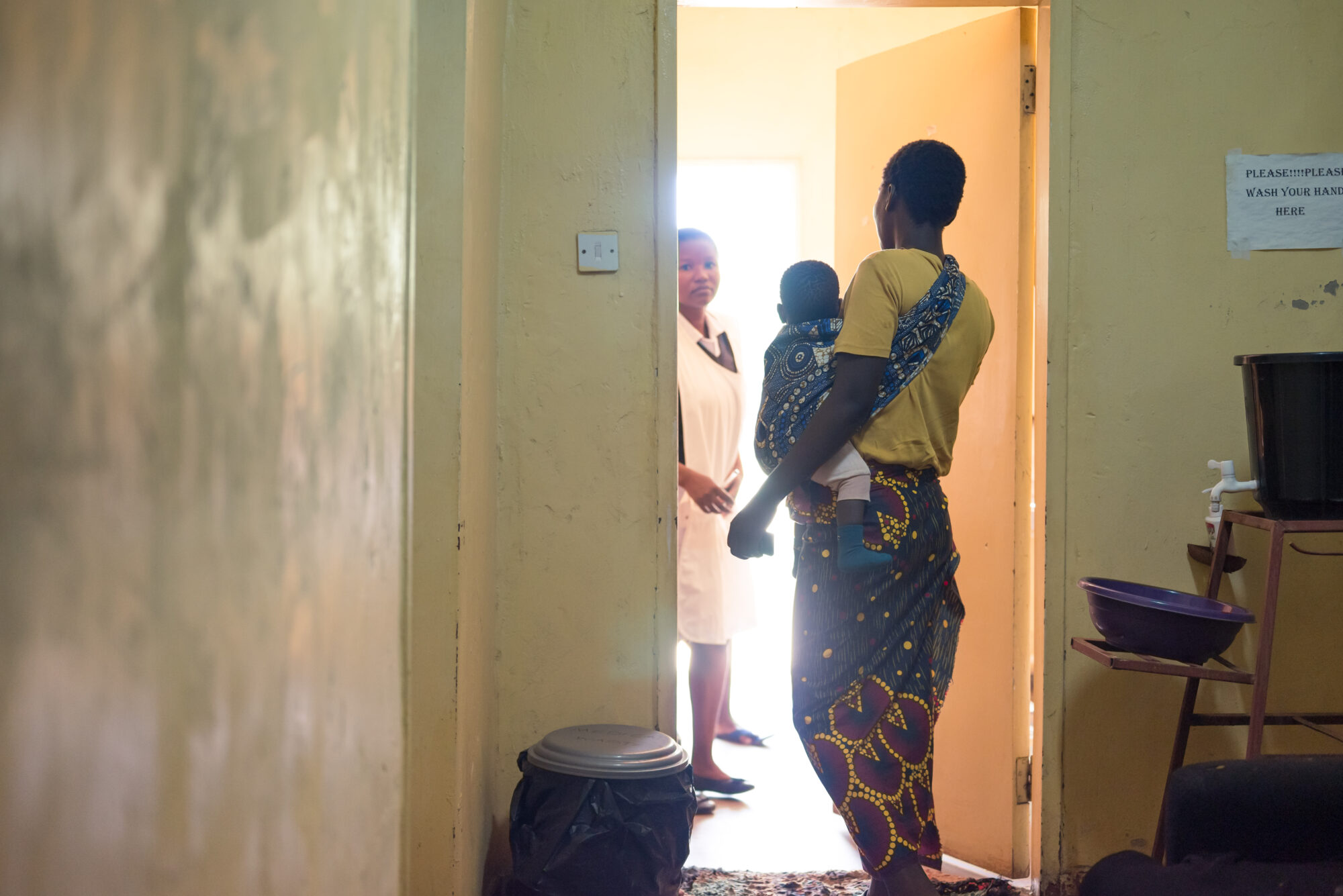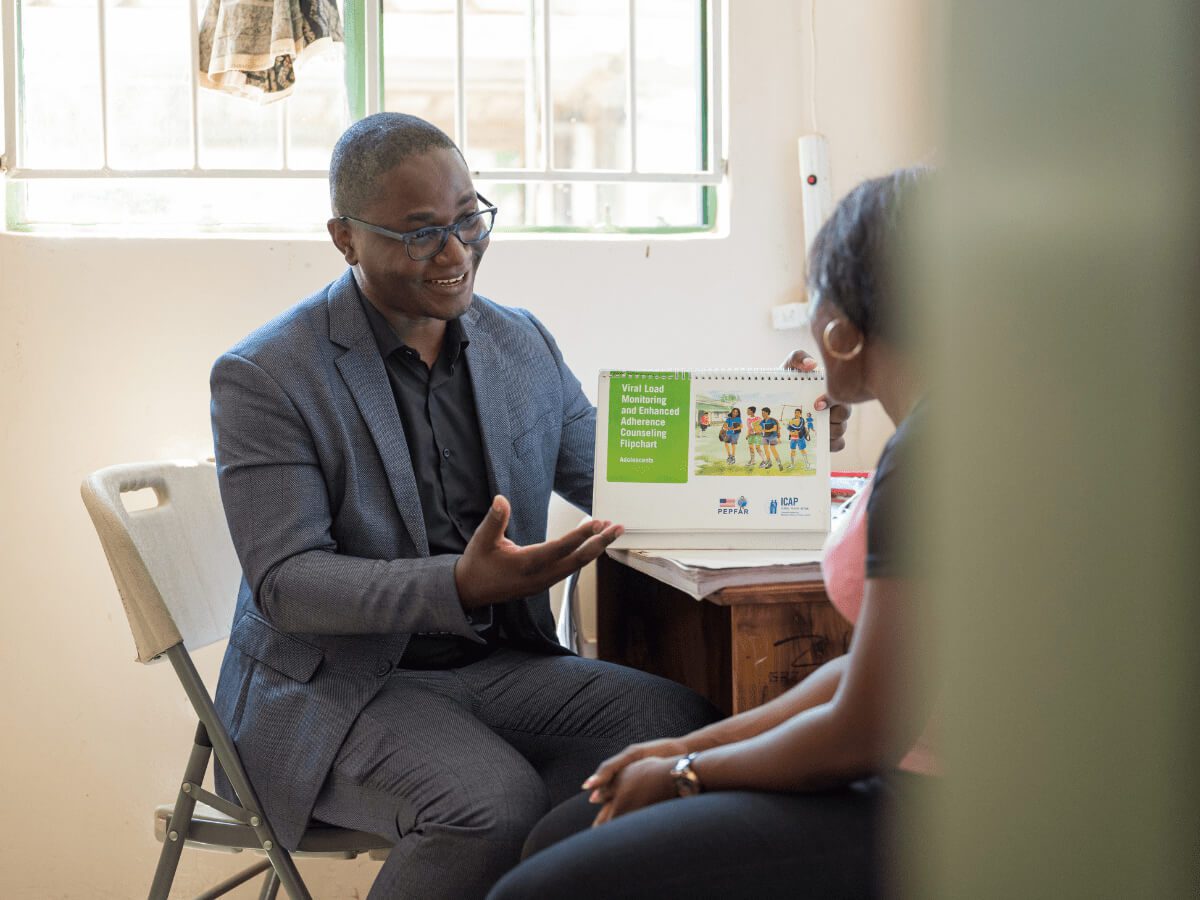Ten years ago, 32-year-old single mother Musangu Kandanda had already begun breastfeeding her first child when she learned she was HIV-positive. After confirming through HIV testing that Musangu’s daughter had also acquired the virus, the Lubosi Health Center in Lukulu district where they lived initiated them both on antiretroviral treatment (ART).
Musangu had missed several of her antenatal doctor’s appointments that may have detected the virus sooner or even helped prevent her and her daughter’s HIV diagnosis. Unfortunately, following up with patients about their missed appointments was a common gap for many already overburdened health facilities at the time.
With support from the U.S. President’s Emergency Plan for AIDS Relief (PEPFAR) through the Centers for Disease Control and Prevention (CDC), ICAP in Zambia is mentoring health care workers and community-based volunteers to ensure that mother-infant pairs like Musangu and her daughter have access to the lifesaving HIV prevention, care, and treatment services they need.
At Lubosi, health staff and community workers are being mentored by ICAP on early infant diagnosis (EID), antiretroviral pediatric regimens, viral load monitoring, and national HIV guidelines to improve mother-infant pair follow-up and quality of care. In collaboration with ICAP, Lubosi developed an EID tracking system, for example. Once a mother is identified as HIV-positive, she is placed in an antenatal register and is seen every three months for viral load testing and ART refill, which continues until she delivers her child. After delivery, the mother-infant pair is transferred into a different appointment registry, which sends the mother reminders of their shared appointment times, sent either via phone or via a community-based volunteer in-person.
“This robust process of tracking mother-infant pairs has helped the facility to ensure that every child is now re-tested for HIV at the recommended intervals, ensuring adherence to national guidelines,” said Tafadzwa Dzinamarira, MSc, MPH, PhD, country director of ICAP in Zambia. “Personalized follow-up is key. Mothers choose their preferred method, whether it’s phone calls or in-person visits, for timely care that fits their needs.”

A mother and child enter a health facility supported by ICAP in Zambia to receive care.
In addition to providing training on follow-up care, ICAP has also trained Lubosi community-based volunteers on establishing support groups for mothers living with HIV. Mentor mothers – or mothers living with HIV who help support pregnant women who are also living with HIV in such areas as breastfeeding and ART adherence – conduct these support groups to give women space to discuss concerns around their health, such as disclosing their HIV status, stigma they face in their communities, or difficulties in ART adherence.
“Creating a safe space for open communication and shared experiences is crucial for building trust and ensuring high-quality care,” added Dzinamarira.
Currently, nearly 1,000 women living with HIV receive health services at Lubosi, including Musangu. For her and her daughter, the recent health facility improvements in follow-up care have changed her life dramatically – she is now the mother of three, and her two younger children were both born HIV-negative. In fact, in 2022, none of the 104 children who were exposed to HIV by their mothers during pregnancy or breastfeeding were diagnosed HIV-positive.
“At first, she used to get sick, and we were in and out of the hospital,” said Musangu, referring to her oldest daughter, who is HIV-positive, “but now she has been put on treatment. She started taking the drugs, and, though it was hard, she got used to it. Now she’s even going to school. She’s very healthy and very brave. I’m happy for that.”
ICAP in Zambia supports 678 health facilities across two provinces of the country, all of which provide prevention of mother-to-child transmission (PMTCT) of HIV services. In total, 1,228 health staff and community-based volunteers have been trained on improvement of PMTCT services.
Photos by Artur Francisco for ICAP
About ICAP
A major global health organization that has been improving public health in countries around the world for two decades, ICAP works to transform the health of populations through innovation, science, and global collaboration. Based at Columbia Mailman School of Public Health, ICAP has projects in more than 40 countries, working side-by-side with ministries of health and local governmental, non-governmental, academic, and community partners to confront some of the world’s greatest health challenges. Through evidence-informed programs, meaningful research, tailored technical assistance, effective training and education programs, and rigorous surveillance to measure and evaluate the impact of public health interventions, ICAP aims to realize a global vision of healthy people, empowered communities, and thriving societies. Online at icap.columbia.edu








